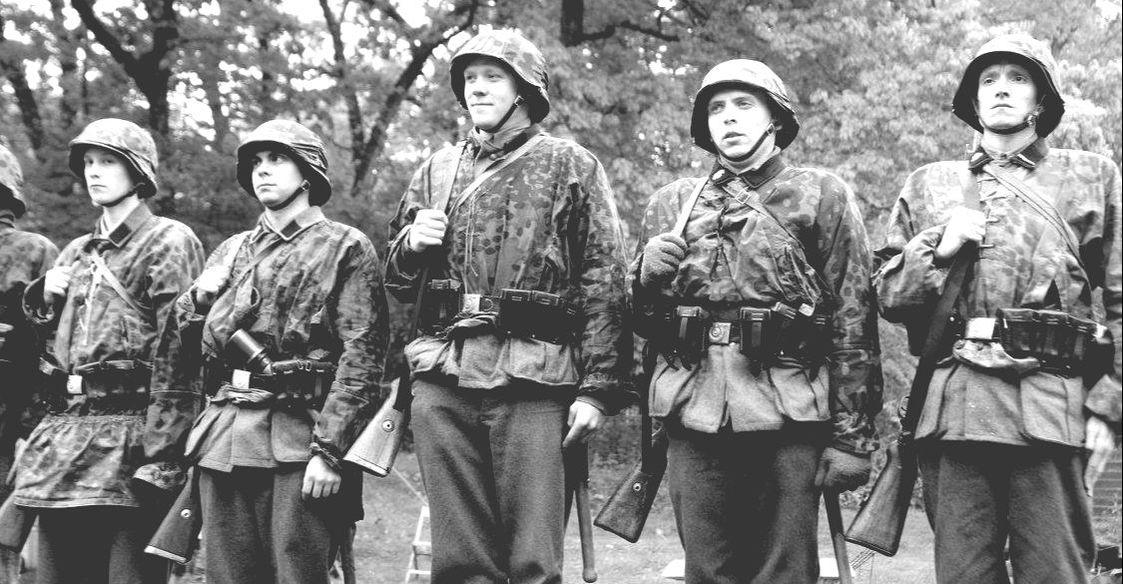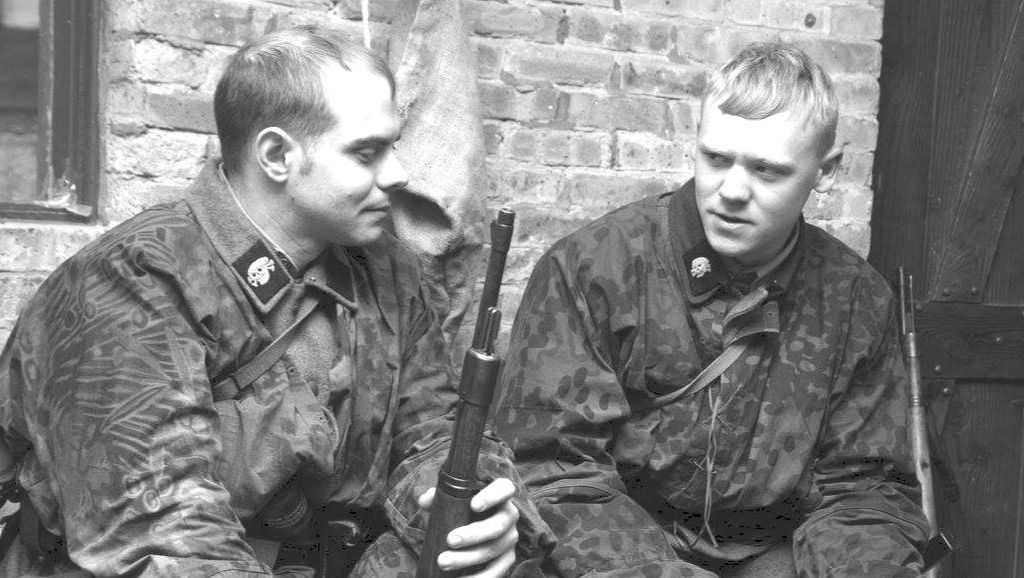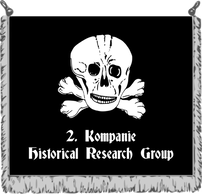SS-Schutze Johann Bischoff
|
Awards:
|
|
Promotions:
|
17. Mai 1939 - SS-Schutze
|
Early Life
Johann Bischoff was born on February 10, 1921 in Stuttgart and was the youngest of two children. His older sister, Lina, was five years older than he was and was a nurse both before and during WWII. His father Georg Bischoff served in the First World War as a Sergeant in the 3rd Jager Regiment of the 200th Division. His father became a history and philosophy teacher after the war and from a young age Johann was exposed to different kinds of art, literature, culture, music, languages, and military history from around Europe. He from a young age showed a level of respect for the different cultures of Europe.
Believing Communism was a major threat to Europe and that one day a war with the Communists would come Johann during his days in school studied Russian as best he could, but was unable to become completely fluent. Despite not being fluent he knew his knowledge in the Russian language and culture could serve him well in his future life. He had a respect for the Russian people and culture, but not the ideology that was running Russia and that was spreading throughout Europe. In school he ran track was quickly recognized by his peers as a skilled runner.
Johann Bischoff was born on February 10, 1921 in Stuttgart and was the youngest of two children. His older sister, Lina, was five years older than he was and was a nurse both before and during WWII. His father Georg Bischoff served in the First World War as a Sergeant in the 3rd Jager Regiment of the 200th Division. His father became a history and philosophy teacher after the war and from a young age Johann was exposed to different kinds of art, literature, culture, music, languages, and military history from around Europe. He from a young age showed a level of respect for the different cultures of Europe.
Believing Communism was a major threat to Europe and that one day a war with the Communists would come Johann during his days in school studied Russian as best he could, but was unable to become completely fluent. Despite not being fluent he knew his knowledge in the Russian language and culture could serve him well in his future life. He had a respect for the Russian people and culture, but not the ideology that was running Russia and that was spreading throughout Europe. In school he ran track was quickly recognized by his peers as a skilled runner.
Pre-War Years in the SS
After graduating school in spring of 1939, he enlisted in the SS only months after turning 18. He feared continuing some form of education would prolong his service to Germany. After training Johann was assigned to the 1. Kompanie of the .SS-Liebstandarte 'Adolf Hitler',, but did not see combat in Poland when war broke out. Shortly after the invasion Poland Johann was transferred into the newly formed SS-Totenkopfdivision by his own request after hearing about their headquarters being based near where he lived in Stuttgart. He would be assigned to 2. Kompanie/SS-Totenkopf-Infanterie-Regiment 1. It was here he did additional training with the new unit in preparation for the invasion of France. Johann was very anxious to get real combat experience after not getting experience in Poland.
French Campaign
He got that chance on May 16th, 1940 where he took part in the fighting near Camrai, France where he assisted in the capture of 16,000 French prisoners. He then took part in the capturing of the town Bethune a few days later, but while retreating from a British counterattack Johann suffered a minor flesh wound to the leg where a bullet skimmed along leg only causing minor damage, but preventing him from being able to comfortably walk and move around so he was put into the field hospital for one month until he got full use of his leg again. He returned to his Kompanie and continued to train as the unit grew and prepared for Operation Barbarossa.
After graduating school in spring of 1939, he enlisted in the SS only months after turning 18. He feared continuing some form of education would prolong his service to Germany. After training Johann was assigned to the 1. Kompanie of the .SS-Liebstandarte 'Adolf Hitler',, but did not see combat in Poland when war broke out. Shortly after the invasion Poland Johann was transferred into the newly formed SS-Totenkopfdivision by his own request after hearing about their headquarters being based near where he lived in Stuttgart. He would be assigned to 2. Kompanie/SS-Totenkopf-Infanterie-Regiment 1. It was here he did additional training with the new unit in preparation for the invasion of France. Johann was very anxious to get real combat experience after not getting experience in Poland.
French Campaign
He got that chance on May 16th, 1940 where he took part in the fighting near Camrai, France where he assisted in the capture of 16,000 French prisoners. He then took part in the capturing of the town Bethune a few days later, but while retreating from a British counterattack Johann suffered a minor flesh wound to the leg where a bullet skimmed along leg only causing minor damage, but preventing him from being able to comfortably walk and move around so he was put into the field hospital for one month until he got full use of his leg again. He returned to his Kompanie and continued to train as the unit grew and prepared for Operation Barbarossa.

Operation Barbarossa
As Operation Barbarossa was being conducted Johann took part in the capturing of the Russian towns Dvinsk, Krlaslau, Dagda, and Rosenov. It was during these operations that Johann proved himself to be a vital asset to the Kompanie for his knowledge the Russian language and culture. He used this skill to help gather intelligence on the region and landscape that would be used in patrols. Johann always took part in reconnaissance patrols because of his skills in analyzing landscape and being able to talk with locals. His NCOs many times personally requested he join them on reconnaissance patrols. He went on to fight valiantly during the offensive against Stalin Line and personally captured 10 prisoners.
Demjansk
Throughout the fall and winter of 1941 when the Soviets launched a series of attacks keeping the Totenkopfdivision on the defensive Johann used his running skills to run messages between different defensive positions when communication would be limited. In March of 1942 when the Totenkopf- division was surrounded while defending the city of Demjansk Johann was killed by an enemy sniper while running between defensive positions.
As Operation Barbarossa was being conducted Johann took part in the capturing of the Russian towns Dvinsk, Krlaslau, Dagda, and Rosenov. It was during these operations that Johann proved himself to be a vital asset to the Kompanie for his knowledge the Russian language and culture. He used this skill to help gather intelligence on the region and landscape that would be used in patrols. Johann always took part in reconnaissance patrols because of his skills in analyzing landscape and being able to talk with locals. His NCOs many times personally requested he join them on reconnaissance patrols. He went on to fight valiantly during the offensive against Stalin Line and personally captured 10 prisoners.
Demjansk
Throughout the fall and winter of 1941 when the Soviets launched a series of attacks keeping the Totenkopfdivision on the defensive Johann used his running skills to run messages between different defensive positions when communication would be limited. In March of 1942 when the Totenkopf- division was surrounded while defending the city of Demjansk Johann was killed by an enemy sniper while running between defensive positions.
DISCLAIMER: 2. Kompanie is a non-political organization We do not support Nazism, or fascism. We are not associated with nor do we condone the actions of the Third Reich or the actual 3.SS Division.


